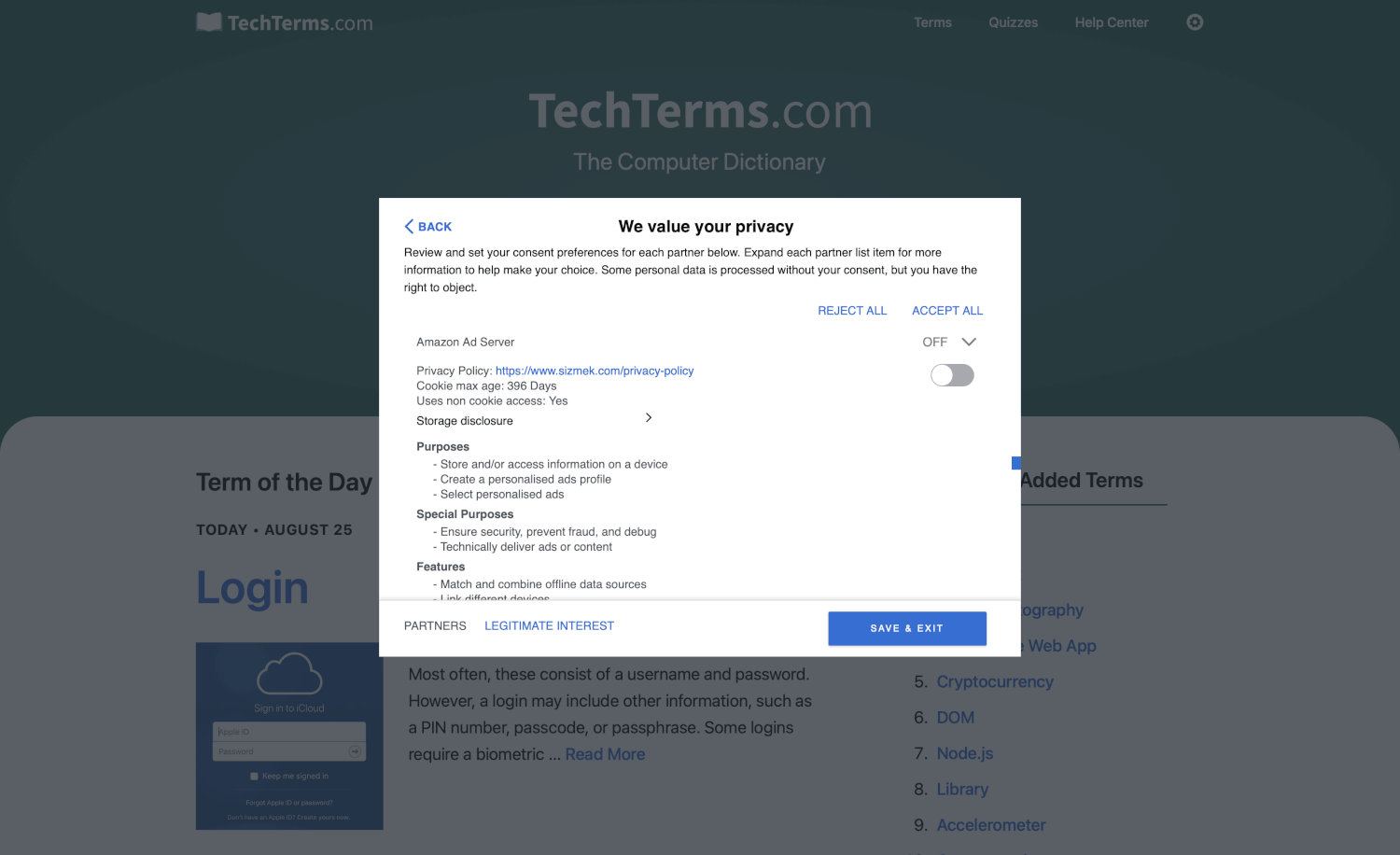CMP
Stands for "Consent Management Platform."
A CMP is a software application that helps website and app owners track whether their users consent to the gathering of their data. This personal data helps provide targeted advertising based on the user's demographic information and online activity. The use of a CMP that properly tracks and manages user consent is required to track user data from EU residents.
Multiple vendors provide CMPs that help track user preferences, allowing businesses to choose the one that fits their needs. All CMPs must have a baseline set of tools. When you visit a site that collects data using a CMP, they must provide a user interface for requesting your consent — typically, a message box that appears when you first visit the site or open the app. These messages should help you understand what data is collected, who may access it, and what it will be used for. Many also allow you to customize what you consent to by sharing only certain types of data with certain third parties.
A CMP must include a database that keeps a record of who consents and who opts out of data tracking. They must also allow you to withdraw consent later if you wish. A CMP may also provide the actual tracking mechanism — typically cookies — and a connection to a third-party data processing service that analyzes collected user data.
The use of a CMP is required by the Transparency Consent Framework (TCF). The TCF is an open standard framework that outlines when user consent is needed, how to ask for it, how to track it, and what a website or app owner may do with the personal data they collect. The TCF was developed to help websites and advertisers comply with the General Data Protection Regulation (GDPR) law in the EU.

 Test Your Knowledge
Test Your Knowledge